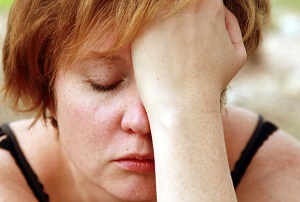 Those of you who’ve read my chapter in the anthology Goddess Shift: Women Leading for a Change know that I have had plenty of personal experience with depression, and that I have a unique relationship with it. I believe this has been an enormous help to me in helping others with depression. So I thought it might be useful to share some of what I do when I get depressed.
Those of you who’ve read my chapter in the anthology Goddess Shift: Women Leading for a Change know that I have had plenty of personal experience with depression, and that I have a unique relationship with it. I believe this has been an enormous help to me in helping others with depression. So I thought it might be useful to share some of what I do when I get depressed.
What resolves depression is grieving losses and traumas, changing brain chemistry, changing life circumstances, and time. What I have written below is more about what I do to cope during the process of resolution. This is not a complete list, by any means, but it is key for me and I hope you find it useful for you or someone you know.
1. Stay in bed, and give in to the exhaustion and lack of motivation.
This is a tricky call because spending time in bed, sleeping, isolating, crying, etc., can sometimes be the worst thing for depression, and can exacerbate and prolong it. Sometimes the best thing I can do to cope with depression is to keep busy. My mother used to tell me when I was growing up that when she got depressed, she’d clean out a closet. Many of us have noticed that when we have to keep functioning—keep parenting, working, or whatever—we actually get through the depression better. When busy is what helps, I try to accomplish something satisfying.
On the other hand, depression can be a sign that we need rest. Though giving up and not functioning can be the exact opposite of what’s helpful at times, other times it can be exactly what is needed for my brain to begin to heal. If I have the time the sense that I need a break from life, I will try this. It doesn’t necessarily make me feel better, and may even make me more aware of the pain I’m in. But I use the time to rest, think, write in a journal, and express my feelings, and within a few hours or days I am usually more ready to join life. Sometimes I’m ready because I feel better, and sometimes just because I’m bored with lying around. If it doesn’t go that way, I force myself to get up and join life and try to heal another way. The call on whether to rest or get busy has to come from experience with yourself, intuition, and experimenting.
2. Force myself to exercise.
Exercise is one of the hardest things to do when I’m depressed, and yet it is one of the absolute proven ways to feel better. Few people when they’re depressed love getting up and exercising, but most people feel better after they do it. You probably already know it does all the right things for brain chemistry, and can be as effective as medication. The trick is not to think about it. As soon as I start to think about it, I talk myself out of it. I have to “just do it” without thinking about it. The form or exercise should be rewarding in itself—walking amid nature, in interesting parts of the city, or with a friend, dancing, Zumba (if that’s your thing; it’s not mine), or cycling—whatever involves movement and increased heart rate for a sustained period of time.
3. Fantasize about something so amazing that it might give me pleasure.
My mind is my best friend. It can comfort me, figure out solutions to problems, entertain me, and take me traveling anywhere in the world or anywhere I can imagine, even if it doesn’t exist. I can virtually travel to the ocean, listen to the waves wash rhythmically to the shore, and feel the blue, salty water lap at my feet, the sand squishing between my toes. I can take care of dying people in India, go canyoning in France, raft in Idaho, live in an RV, go to Sundance, live on a farm, study painting at a retreat in Vermont … OK, these are random things and maybe not what you want to fantasize about, but something might give you a little pleasure or relief, and if you let your mind explore, you might find what it is for you. It’s free; you can do it anytime, and your mind responds to what you imagine the same way it does to what you see.
4. Look for pleasure through my senses.
Pleasure is incompatible with depression. Anywhere I can find pleasure, as long as it doesn’t hurt me or anyone else, it’s a good thing. The gift of being alive is our bodies, and that means our senses and our emotions. I remind myself of that and consider what would feel good: a hot bath, gently scratching my head, walking, smelling cinnamon, stroking my cat, tasting something delicious, hugging someone I love, lying on pine needles, putting my hand over my heart and feeling the warmth and protection from that, singing to music I love … whatever harmlessly gives me pleasure—even a little—I go toward that.
5. Talk to someone about whatever I need to complain about.
This is one of the most important options for me, but also one of the harder ones to arrange. People have to be available, capable, and in the mood. Fortunately, I cultivate people who can and want to do this well when I need it, including my own therapist.
I would love to hear from you about what helps you when you are depressed.

The preceding article was solely written by the author named above. Any views and opinions expressed are not necessarily shared by GoodTherapy.org. Questions or concerns about the preceding article can be directed to the author or posted as a comment below.


 When Depression Comes from What Didn’t Happen
When Depression Comes from What Didn’t Happen What Is Positive Psychology?
What Is Positive Psychology? Risk Factors for Postpartum Depression
Risk Factors for Postpartum Depression

Please fill out all required fields to submit your message.
Invalid Email Address.
Please confirm that you are human.
Leave a Comment
By commenting you acknowledge acceptance of GoodTherapy.org's Terms and Conditions of Use.